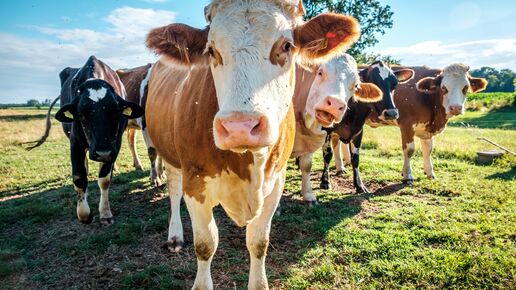Lumpy skin disease in cattle: from containment to elimination

EFSA has assessed the most effective strategies for eliminating lumpy skin disease (LSD) now that the outbreaks in south-eastern Europe have been contained.
A report published today gives advice on the ideal duration of vaccination programmes to eliminate the disease, and looks at the probability The likelihood that a particular event will occur or that a measured value will fall within a particular range. that the disease will reappear and at possible surveillance methods.
Outbreaks of LSD in the Balkan region fell dramatically by 95 percent from 7,483 in 2016 to 385 in 2017. In 2018 no outbreaks were reported in south-eastern Europe, although one outbreak was reported in the European part of Türkiye.
The report says that the more effective the vaccination is in protecting animals against the disease – and the more herds are vaccinated – the shorter the vaccination programme can be. For example, if the vaccination is effective for 80% of vaccinated animals, a two-year programme with coverage of 90% of herds is sufficient.
The probability that LSD will reappear after a vaccination programme is mainly linked to the likelihood of infected animals being introduced from neighbouring affected areas. Other factors examined in the report include the possible persistence Persistence refers to the ability of harmful organisms like bacteria to survive and thrive despite regular cleaning and disinfection efforts, potentially lingering in hidden places for months or even years. of the virus in vectors (such as ticks and insects) or in the environment.
The report also gives an overview of surveillance methods. These include measures for early detection of new cases and how to demonstrate absence of disease.
How to contact us
EFSA Media Relations Office
Tel. +39 0521 036 149
E-mail: press [at] efsa.europa.eu (Press[at]efsa[dot]europa[dot]eu)
(Only if you are a member of the press)
Ask a Question Service
You have a question about EFSA’s work? Contact our Ask a Question service!